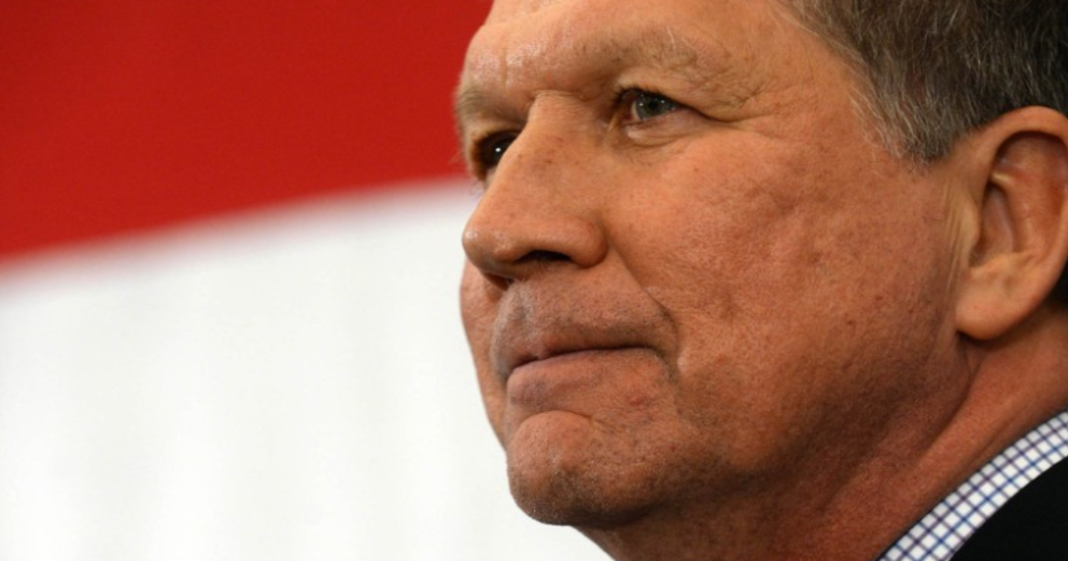Most people outside of New Hampshire may not even have heard of the town of Dixville Notch. However, events there early this morning may have serious implications as the New Hampshire primary gets underway. It is in this remote hamlet near that Canadian border (current population: 12) that the first votes of the New Hampshire Primary have been made since 1960. The hands-down Democratic winner was Bernie Sanders, which comes as no surprise. However, the candidate who got the most GOP votes was someone we haven’t heard much about recently: Ohio governor John Kasich, who defeated Trump by a 3-2 vote.
One of the Republican voters who supported Kasich was 66-year-old developer Les Otten, a developer leading the renovation of the local resort, The Balsams. In explaining his choice, he recalled an old commercial ad for a certain fast food chain, in which a lady demanded, “Where’s the beef?” For Otten, who has been keeping track of the GOP campaign, Kasich had the most substance. He says, “At the end of the day, there was more meat [to Kasich] and less noise . . . to me, it came down between he and Jeb Bush. I think they were both great, but Kasich managed to stay out of the fray.”
Indeed, Kasich has. While Trump, Cruz and Rubio have been making complete asses of themselves on the public stage, Kasich has managed to keep a low profile. Now, this early vote – as small as it was – has given the Kasich campaign new confidence. He told ABC News anchor George Stephanopoulos that, while he couldn’t make predictions, his campaign was “going to finish very strong.” He added: “People have counted me out all of my career . . . I hope they keep underestimating me because there was another guy they underestimated all the time. His name was Reagan.”
The comparison is apt. Like Reagan, Kasich is all about business and cutting taxes – particularly for the wealthy and large corporations. Appearing on CNBC, Kasich declared that he’d be happy to cut the corporate tax rate to less than 25 percent, while making it easier for U.S. corporations to bring their profits home and deduct the cost of capital goods used for equipment upgrades. In addition, he would drop the top tax bracket to 28% (currently, that rate is just over 38% – the lowest in U.S. history) and cut the capital gains tax – which primarily affects those with investment income – from its current 15% to 10%.
Kasich is ambitious. During his CNBC interview, he said, “The agenda within the first 100 days, you’re going to need to have a seat belt to stay up with it. It’s regulatory reform, because regulations kill business, particularly small business, if they’re just mindless.” He’s proposing a moratorium on all federal regulations for twelve months.
In short, Kasich stands for the same, tired, “trickle-down” economic policies that have been eroding the nation’s middle class since the 1980s. John Kasich may not be a fool like Trump or a delusional theocrat like Cruz – and that makes him all the more dangerous. A win in New Hampshire doesn’t necessarily mean he would go on to win the GOP nomination – but it would spark serious interest in his candidacy going forward.
Still, it’s early in the game. The voters of Dixville Notch, for all their admirable commitment to the democratic process, tend to be given significance out of all proportion to their small numbers when it comes to predicting which candidates will go on to win their parties’ nominations. Still, all-in-all, the small community has a good track record of picking who will win the nomination over the past 56 years.




![Senator Schumer: “Single Payer [Health Care] is On The Table”](https://sandbox.trofire.com/wp-content/uploads/2017/07/Universal-Healthcare-218x150.jpg)